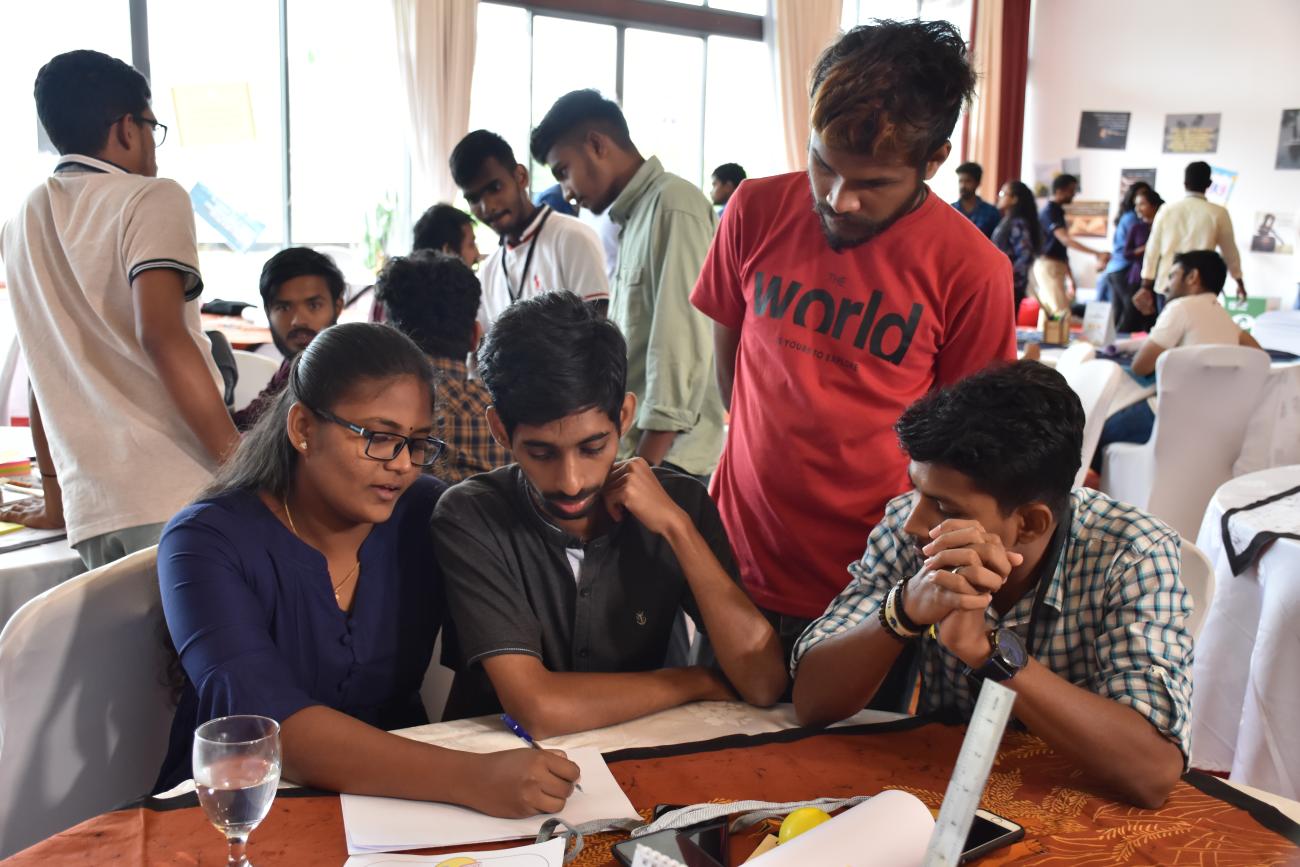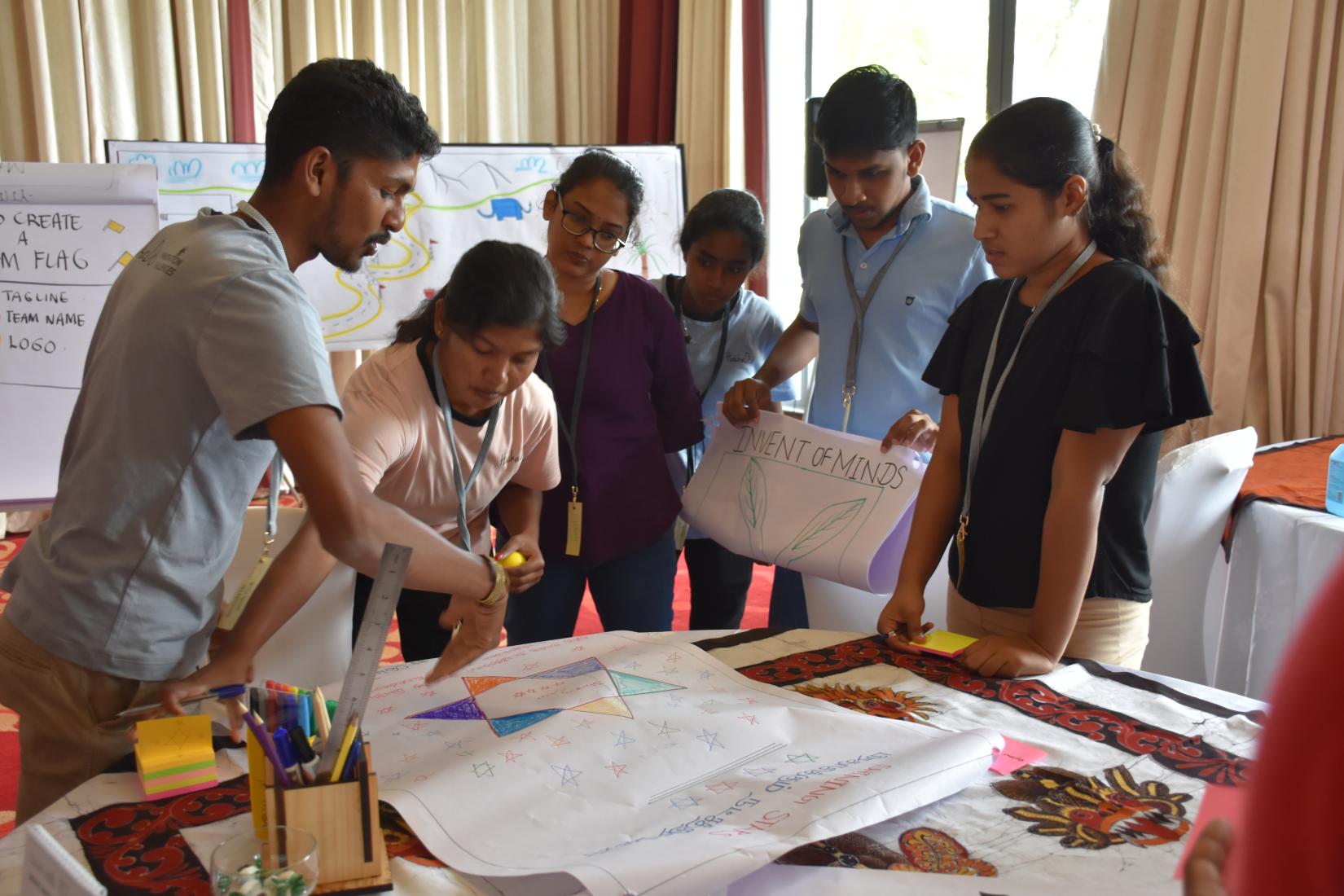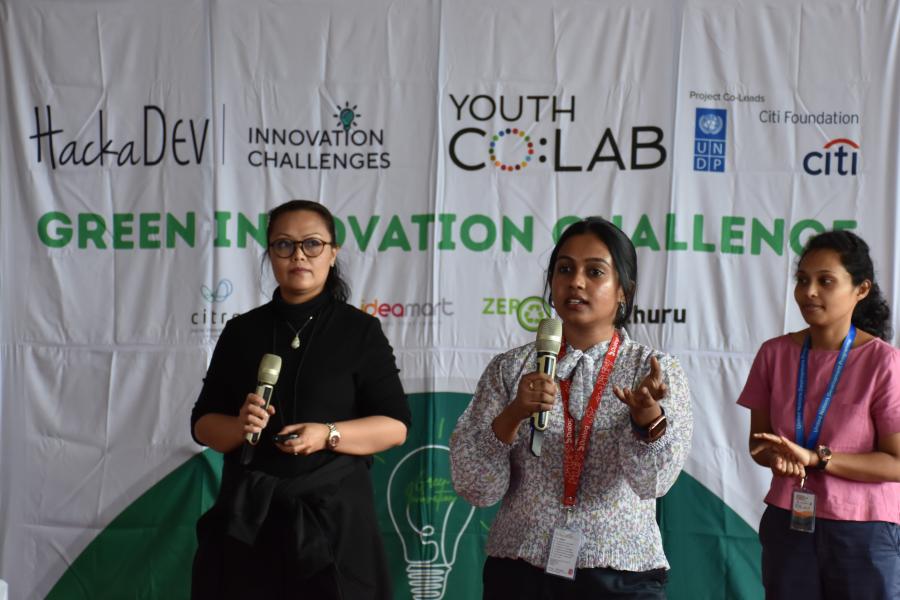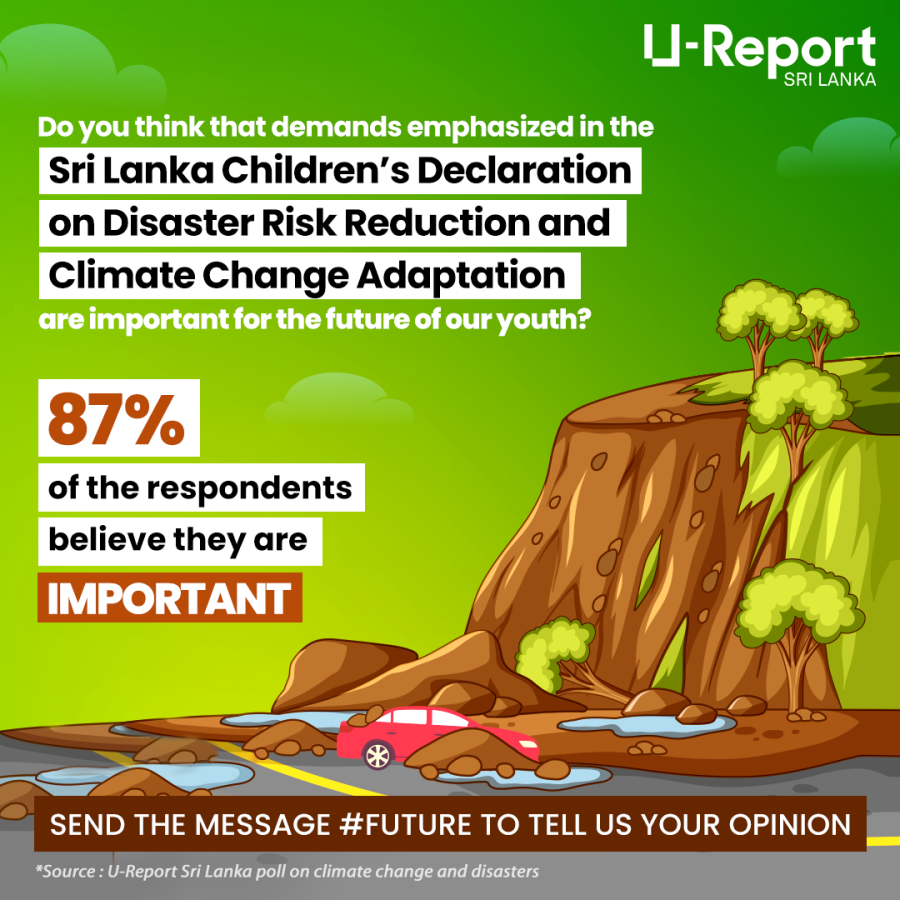Empowering Sri Lanka's Youth for a Greener Future

Youth are at the heart of the green transition. International Youth Day is a reminder of the importance of green skills among young people across Sri Lanka.
As global temperatures surged to unprecedented heights last month, the need to transition towards an ecologically sustainable and climate-resilient world has grown increasingly evident. Sri Lanka is highly exposed to the adverse impacts of climate change, with 96% of the country’s disasters being climate and weather-related, according to the Index for Risk Management.
Young people are increasingly aware of the challenges and risks presented by the climate crisis and are calling for urgent action to combat climate change and its impacts. Young climate advocates are making valuable contributions to building political will and accelerating national and corporate commitments to the Paris Agreement, demonstrating the power they possess to hold decision-makers accountable.
However, a successful transition towards a greener world will ultimately depend on the development of ‘green skills’, namely the knowledge, abilities, values and attitudes needed to live in, develop and support a sustainable and resource-efficient society.
This encompasses not only the technical know-how for navigating green technologies and processes, but also cross-disciplinary competencies and perspectives that facilitate environmentally sustainable decisions. Although green skills are relevant for people of all ages, they are especially important for young people, who can contribute to the green transition for a longer a period of time.
Despite the growing recognition of the relevance of green skills, the available evidence suggests a shortage of such skills among young people. By 2030, the International Labour Organization (ILO) estimates that a green transition will result in the creation of more than 8.4 million jobs that specifically contribute to the preservation of the environment either by supporting environmentally friendly processes or through the production of green products and services.
The skills gap represents an obstacle for young people to participate in a world of work that is shifting towards a green economy. If current trends persist, more than 60 percent of young people may lack the skills required to thrive in the green economy by 2030. In Sri Lanka, this figure is estimated to be even higher due to limited training infrastructure. In order to successfully navigate this changing environment and leverage the opportunities that it presents, young people across the country need to be well-equipped with green skills.
Cultivating green skills among Sri Lanka's youth
"The school garden programme is our favorite part of professional guidance training. We are dedicated to excelling in this agricultural initiative, which we believe will shape our future”.
Sayuranga, a seventh-grader at Senkadagala Special School in Kandy, shares his classmates' enthusiasm for agricultural pursuits despite his hearing impairment. He has demonstrated a remarkable talent in this field. Acquiring hands-on knowledge in maintaining an entrepreneurial garden, Sayuranga envisions agriculture as a path to a self-sustaining future.
Green skills play a crucial role in various sectors, including education and agriculture, particularly in empowering youth. To instill these skills from an early age, the Food and Agriculture Organization of the United Nations (FAO) is implementing a project in which 400 schools across North, Central, and Uva Provinces are establishing entrepreneurial school gardens. Over 100,000 secondary school students are partaking in a discovery-based learning approach, fostering entrepreneurial thinking in agriculture and equipping them with the know-how to transform their gardens into sources of nutritious produce.
Supported by funding from the Australian government, young 'agri-champions' in these selected schools are educated in innovative methods to enhance food security and agri-entrepreneurial skills. This includes managing coordination, sales, and income generation while adhering to eco-friendly agricultural practices.
Building transformative resilience through entrepreneurship
Although a shift toward a green economy is creating many new job opportunities for young people, some represent a transition from obsolete means of production to greener ones by which the existing workforce will need to be re-skilled and absorbed through new work opportunities. A successful transition would only be possible if associated risks—disruption of existing employment patterns and alignment of new work opportunities and skills—are managed well.
Extending beyond job creation and potential for decent work opportunities, entrepreneurship disrupts the status-quo by injecting new thinking, pre-empting solutions, and paving the way for constant change. When combined with the creativity, drive, and skills of young people, it creates a force that can pave the way for reaching the ambitions of the 2030 Sustainable Development Agenda.
ILO’s South Asia Leadership in Entrepreneurship Programme has emerged as a platform geared towards boosting young people’s consideration of entrepreneurship as a viable career choice and creating a shift in the entrepreneurial ecosystem. Implemented in partnership with the Ceylon Chamber of Commerce, over 2,600 students, from 65 schools, across 6 districts have enhanced their skills and knowledge through the ILO flagship entrepreneurship training – Know About your Business.
A highlight of the programme is the introduction of SPARK – a new national competition for young entrepreneurs aged 15 to 24, to pitch their innovative ideas and entrepreneurial solutions to the most pressing challenges of our time. This year, SPARK received hundreds of applications, of which 100 shortlisted applicants received virtual training. This week, 35 shortlisted applicants participated in a 2-day residential bootcamp to hone their skills, receive one-one-one mentorship, and connect with business champions. The Grand Finale, taking place on World Entrepreneurship Day on 21 August, will see the winner of the SPARK Award.

The United Nations Development Programme’s (UNDP) HackaDev ‘Green Innovation Challenge’ serves as another example of ongoing initiatives that tap into the vast potential of young people to support the achievement of sustainable development in Sri Lanka. The project was introduced to crowdsource innovative solutions by creating sustainable social enterprises that contribute to both the environment and economic growth of the country, and has thus far engaged with 358 young people from across the island.
Dhanushka Bandara, is one such young entrepreneur who shared that, “attending the HackaDev Green Innovation Challenge was an incredible opportunity that opened doors to abundant learnings and valuable connections. Through this experience, I found myself to be on a green entrepreneurial path of producing eco-friendly charcoal briquettes with coconut waste.”

Youth as agents of change in Sri Lanka
All over the world, young people like Dhanushka are responding to present day challenges with innovative approaches and fresh ideas, building bridges and creating the world they want. They are leading development for themselves, their communities and their societies.
Youth are becoming better prepared than ever to engage with the world’s most pressing issues and influence sustainable development. They have the potential to be the first generation in history that can eradicate poverty and reverse climate change.
To bring the demands of children to the forefront, UNICEF, together with partners and 350 adolescents from five high risk districts, developed Sri Lanka Children’s Declaration on Climate Change Adaptation (CCA) and Disaster Risk Reduction (DRR) through the Child Centered-DRR programme by identifying six key demands that are needed to reduce the impact of disasters and climate change.

U-Report, an adolescent and youth platform that empowers young people to speak out on issues that matter to them, was used to get voices and consensus of over 8,000 young people for the declaration. Promising findings generated through U-Report are currently being used to advocate in getting cabinet approval to convert declaration into a legally binding charter – making it the first children’s charter for CCA and DRR in the country.
Young people also constitute the majority of UN Volunteers working towards accelerating the SDGs in Sri Lanka. Engaging in climate-focused initiatives ranging from creating awareness among the youth of sustainable life practices to advocating for policy reforms to ensure sustainable economic practices, young volunteers are forging a path to ensure a greener and more resilient future through their work.
Young volunteers also actively foster inclusive environments by engaging in gender-focused initiatives aimed at empowering girls and women and uplifting the most vulnerable and marginalized demographics of society. Bringing together youth of diverse religions and ethnicities, volunteerism facilitates meaningful partnerships between generations, fostersmutual respect, and empowers young people to take ownership of development progress and contribute to a just and more equitable society. It also serves as a catalyst for developing a wide range of skills related to communication, leadership, problem-solving and resilience, allowing them to prepare for future challenges with a well-rounded skillset.
Greening the future through youth empowerment
Young people in Sri Lanka are entrepreneurs, innovators, and champions of sustainable progress. Whether through education, agriculture, science or technology, young people are scaling up their efforts and using their skills to accelerate climate action.
On Sri Lanka's journey towards becoming a more a resilient and eco-conscious nation, the importance of young people’s voices and potential should not be underestimated. By nurturing green skills and fostering youth-led initiatives, Sri Lanka is taking bold steps towards a brighter, sustainable, and more inclusive future.
Young people who are equipped with green skills will be better prepared to act as catalysts who can lead the transition to a greener society in which every young person is empowered to achieve their full potential, and where their human rights are realized.









